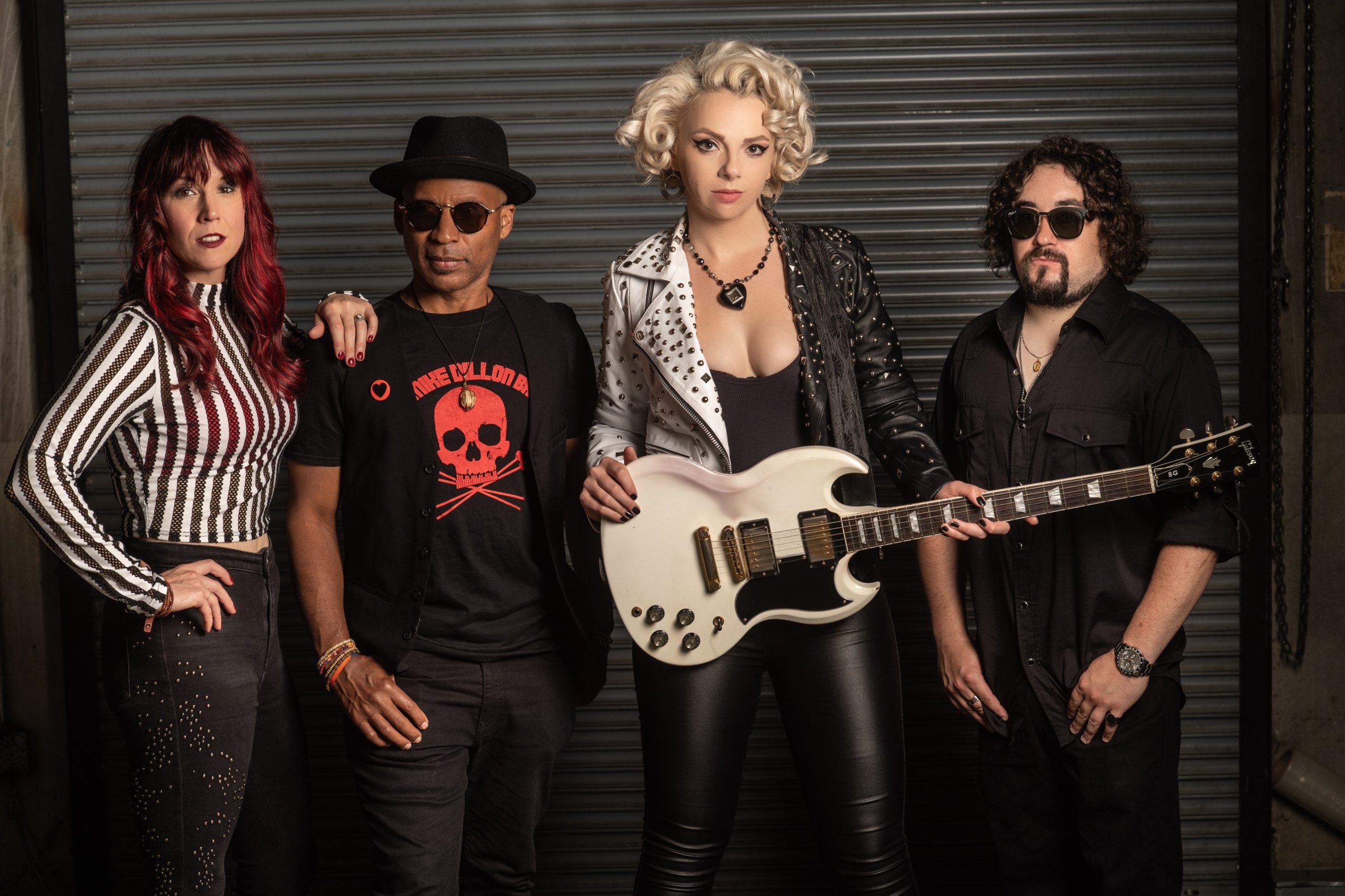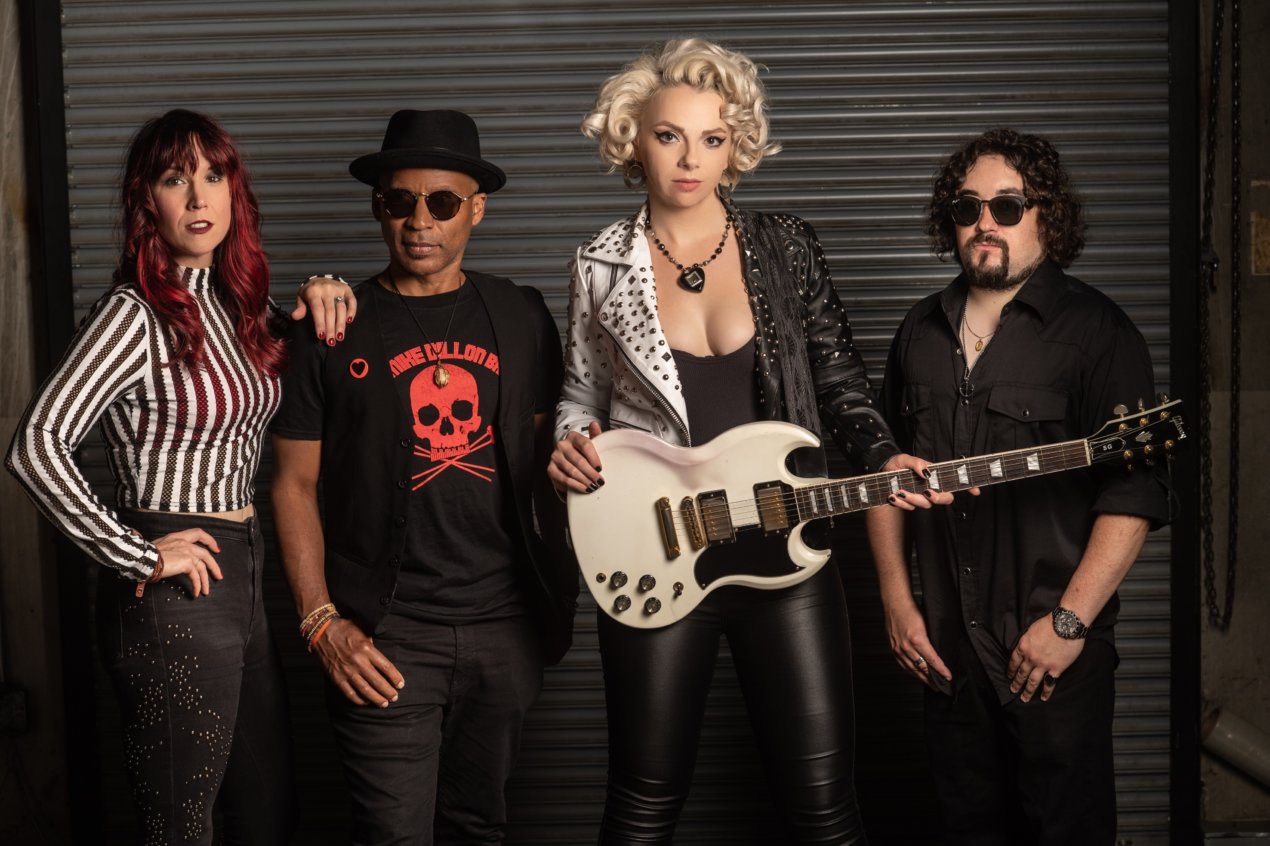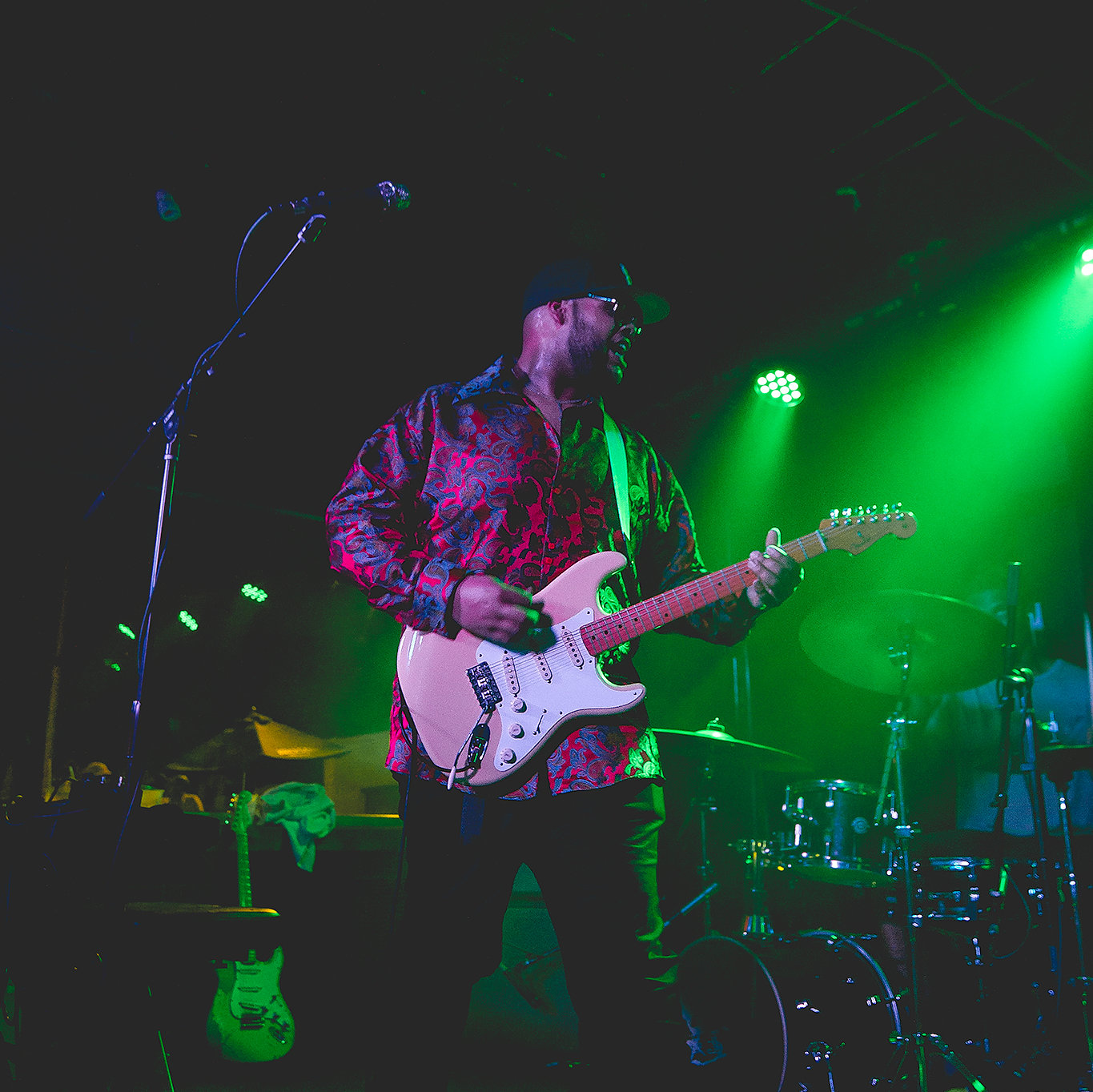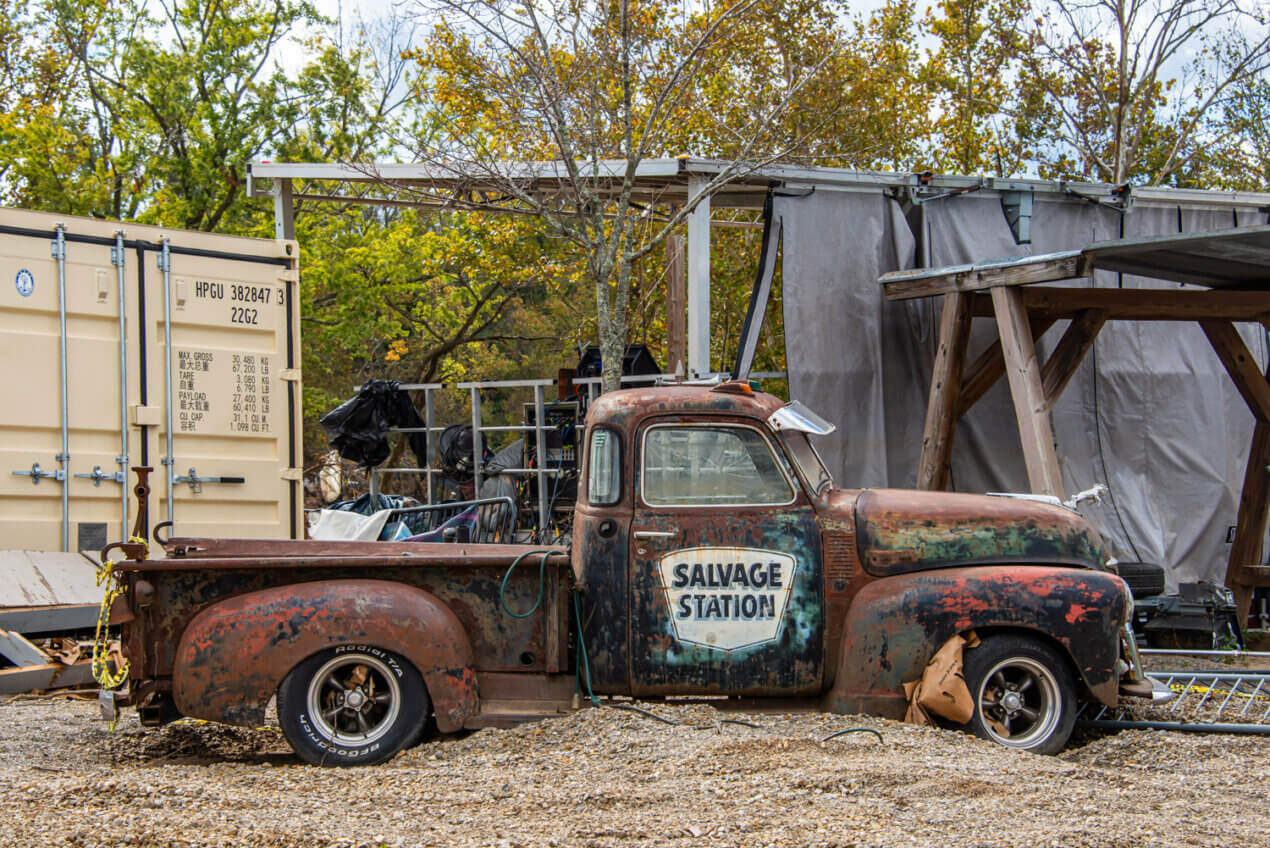
Samantha Fish
with Eddie 9V + Django Knight
DOORS: 5:00 PM
STARTS: 6:30 PM
LIVE ON THE INDOOR STAGE
Genre: Blues/RockAge Limit: Must be 12 or Older
NO REFUNDS; FREE PARKING
Samantha Fish (with Eddie 9V and Django Knight) will be performing LIVE on the Indoor Stage at Salvage Station on Sunday, April 17th, 2022! Doors open at 5PM and the music starts at 6:30PM. This is a General Admission, 12+ show (no exceptions). FREE PARKING!
Root Down will be serving their delicious twist on Southern Soul food and we’ll have a few rotating food trucks on-site as well! There will also be MULTIPLE full bars open for you to enjoy!
CDC guidelines + band requirements + our venue policies are subject to change daily, so please keep your eyes on https://salvagestation.com/covid-policy/ for updates. We do not issue refunds based on our Covid-19 policies and reserve the right to change them at any time.
Check out our FAQ page here to learn about large event parking options, what you can and cannot bring inside the venue, and MORE!
Got further questions about attending a show at Salvage Station? We’ve got answers! Check out our FAQs here.
ABOUT SAMANTHA FISH:

“That was my mission on this album: To really set these songs up so that they have a life of their own,” says Samantha Fish about Kill or Be Kind, her sixth solo album and her debut on Rounder Records. “Strong messages from the heart – that’s what I really set out for.” Indeed, what comes across immediately on hearing the album is the extraordinary level of songcraft on its eleven tracks, the way these songs are so smartly put together to deliver a potent emotional impact.
Anyone who has ever heard Fish’s previous albums knows that she has earned a place in the top rank of contemporary blues guitarists and that her voice can wring the soul out of a ballad and belt out a rocker with roof-shaking force. And, rest reassured, those virtues are fully in evidence on Kill or Be Kind. But each of the songs on the album does far more than simply provide a setting for Fish’s pyrotechnics. They tell captivating stories, set up by verses that deftly set the scene, choruses that lift with real feeling, and hooks that later rise up in your thoughts, even when you’re not aware that you’re thinking of music at all. It’s the kind of songwriting that emerges when raw talent is leavened by experience and aspiration, and when a committed artist genuinely has something to say. Those qualities make Kill or Be Kind a genuine artistic breakthrough for Fish.
“I think I’ve grown as a performer and as a player,” she explains. “I’ve become more respectful of the melody. You can go up and down the fret board and up and down your vocal register, but that’s not going to be as powerful as conveying a simple melody that people can really connect to and sing themselves.” To help bring those elements to her music, Fish sought out high-quality songwriting collaborators – the likes of Jim McCormick (who has worked with Fish before and also written for Luke Bryan and Keith Urban); Kate Pearlman (who has worked with Kelly Clarkson); Patrick Sweeney; Parker Millsap; and Eric McFadden. The result is an album on which each song is distinct, but the complete work hangs together as a coherent, entirely satisfying statement. “When you get to this point in your life as an artist,” Fish says, “it’s good to work with others, because it makes you stretch. I think you hear a lot of that nuance on the record, songs that have a pop sensibility to them, hooks that really pull you in.”
You get a good sense of the range the album covers from the first two songs released. Fish propels “Watch It Die” with an insistent guitar riff, but near the song’s end two female background singers lend the song a haunting soulful feel. Meanwhile, “Love Letters” moves on an insinuating, stop-time riff in its verses until it bursts in passion on its chorus. Both songs use horn sections for finesse and texture. “Love Letters” also introduces one of the album’s central themes: the allure of losing yourself in love – and the dangers of it. “Keep waking up in the bed I made,” Fish sings. “Forget the pain when you wanna play/I’m back to broken when you go away.”
“That’s just a love-sick song,” Fish says, laughing. “like I think I was when I wrote it.” The title track, a seductive ballad, offers a lover a stark choice: “Make up your mind/I can kill or be kind.” To explain that dichotomy, Fish says, “It’s funny how love can be so fickle, how quickly you go from object of affection to one of disdain. I’ve always found that dynamic interesting. That track is full of that duality,” she adds, laughing. “I also loved the Memphis sound of the horns on there. They sound modern, but it’s got this vintage feeling as well.” The songs “Dirty,” “Love Your Lies” and “Fair-Weather” explore similar themes – how deceit, self-deception and shifting expectations can alter the course of life and love. The affecting ballad “Dream Girl” stands the endearment of its title on its head and explores the dilemma of a love not coming to fruition. “I wish you’d take the rest of me,” Fish sings. “These tears, they kill your fantasy.” On “She Don’t Live Around Here Anymore,” a soul ballad once again bolstered by tasteful horn parts, the singer confronts the feeling of being used and finds empowerment in walking away.
The album is framed by songs — “Bulletproof” and “You Got It Bad (Better Than You Ever Had).” “Bulletproof digs into the theme of vulnerability, about it being mistaken for weakness, and how we often times feel the need to wear a mask to survive in the world today, while “You Got It Bad (Better Than You Ever Had)” is about working towards your dreams and the knifes edge we often walk to reach our goals.
“Trying Not to Fall in Love With You” finds the singer not wanting to rush a relationship – and therefore undermine it. “I fall fast,” Fish admits, “I have to remember to take care and not scare the person away.”
To make Kill or Be Kind, Fish chose to work at the legendary Royal Studios in Memphis, with Scott Billington as producer. “I worked at Royal before, when I made my Wild Heart album,” she says. “The soul in the walls, the vibe – you can feel it in that place. I’m such a fan of Al Green, Ann Peebles and all the classic recordings that happened there. Memphis just kept calling to me. I’ve always felt so inspired there.” As for Billington, a three-time Grammy winner, Fish appreciated both his open-mindedness and his willingness to ease her out of her comfort zone. “Scott allowed me to see the building-out process of the album all the way through, from the top to the bottom,” she says. “Bringing in background singers and synthesizers, which I’d never done on an album before, that added an extra edge. Honestly, it was a challenge. It pushed me to think about the songs differently. That trust from my producer gave me the freedom to really take some risks.”
Having completed an album that she believes in so strongly – “This is me coming through, my personality,” she says – Fish is eager to bring it to the world. “I got the moon in the back of my mind, and I want to shoot for it!” she declares. “I want to reach over genre lines and get out to as many people as possible. This album is so broad – and it’s all me. So I’m just hoping it catches people and appeals to them.”
She concludes, “Overall my big goal, career-wise, is to contribute something different and new to music. I want to give something that stands apart and yet is timeless.” With Kill or Be Kind, Samantha Fish is well on her way along that path. – Anthony DeCurtis
LISTEN TO SAMANTHA FISH:
ABOUT EDDIE 9V:

All his life, Eddie 9V (9-volt) has acted on instinct. Aged just 15, this old-soul artist turned away from the path of college and jobs to burst all guns blazing onto the roots and blues club circuit of his native Atlanta, Georgia. Flash forward to 2019, and for his debut album, Left My Soul In Memphis, the prodigious multi-instrumentalist simply powered up the amps in his mobile trailer and with his brother/co-writer/producer, Lane Kelly, laid down one of the year’s breakout releases, acclaimed as “fresh and life-affirming” by Rock & Blues Muse. “Memphis was a total side project,” shrugs Eddie, “that ended up taking off.”
Now, released in 2021 on Ruf Records, Little Black Flies is the 25-year-old’s most impulsive move to date. Tracked live in Atlanta’s Echo Deco Studios through November 2020, once again with Lane turning the knobs, plus a who’s who of the state’s best musicians, it’s an album that Eddie planned to feel like it’s unfolding right in front of you – right down to the clink of bottles and loose studio banter. “I’ve seen a trend in modern recording,” he says. “There’s no soul. I took inspiration from Albert Collins, Otis Rush, Mike Bloomfield. All those great records were done live with their buddies and no overdubs. I wanted the playing to be spot-on – but even if we made a mistake, we kept going.”
Little Black Flies represents a passing of the baton to a bandleader that many credit for reinvigorating the South’s proud roots scene. Born in June 1996, to a non-musical family living ten miles south of Atlanta, Eddie still remembers his fateful first guitar. “I was six and it was one of those with the speaker in it – get the most bang for your buck, y’know?” he muses. While manufactured pop dominated the airwaves as he came up at Union Grove High School in nearby McDonough, Eddie forked hard left, hanging with Lane and his friends, and digging back into the catalogues of blues giants like Al Green, Muddy Waters, Howlin’ Wolf, Freddie King and Percy Sledge. “I studied the older cats,” he explains, “saw what made them groove and tick.”
As for his freewheeling lyrics, Eddie credits his home life: “I’ve been making words up on the spot for years – my Uncle Brian taught me how to do that at our family fish fries. How to make people laugh, how to hold an audience’s attention.”
Eddie still recalls the frustration of watching local musicians load into the fabled clubs of Atlanta. “My first heroes were the local legends like Sean Costello, but I was too young to go see them,” he remembers. When he finally made it inside, it was as a performer, learning his craft at the sharp end, and at precocious speed, with early vehicles like covers band The Smokin’ Frogs, and its maturing blues-rock offshoot, The Georgia Flood. “My first step in being a professional musician was learning how to accept failure,” says Eddie. “As a nobody, the music business is a dartboard. You just hope something sticks.”
In 2013 – and before Eddie had even graduated high school – The Georgia Flood represented the Atlanta Blues Society in the International Blues Challenge in Memphis. That band spilled over into the indie-rock group PREACHERVAN, but perhaps the pivotal moment came in 2019, when he adopted the Eddie 9V moniker for his solo work. “There are too many Joe Schmo blues bands,” he reasons. “I was on the road with PREACHERVAN and we were talking like mobsters. We all gave each other names – and mine was Eddie.”
Since that rebirth as Eddie 9V, he’s not only pricked up the ears of the music press (“A huge talent,” wrote Blues Blast, “to be noticed and followed”), but earned a respect on the scene that made it easy to recruit local heroes for the Little Black Flies sessions. “Every player is the best of their craft,” says Eddie of his studio band, “and that’s why I picked ’em. We had the Tedeschi Trucks Band’s bass player Brandon Boone and the icon himself, Cody Matlock, on guitar. Everybody’s mood was so exciting. The energy was there.”
This record catches everything that went down at a session that felt more like a party, as Eddie leads the lineup through nine new songs – plus three classic covers – that retool the soul-blues genre on his own terms, reminding a new generation why this music hits so hard. Horns blast, drums rattle, slide guitars howl and at the heart of it all is Eddie’s stinging guitar and unmistakable vocal, the bandleader thrilling us one minute with his soul-man holler, then spinning story songs like he’s sat on the next barstool. “The title track,” he explains, “was a narrative about me being in love with the girl in the apartment upstairs, who was being abused, and wanting to do something about it. Deep stuff. “3AM In Chicago” is about America’s unfairness between race and income levels, but also wanting to improve on the situation. “Puttin’ The Kids To Bed” was a total ‘let’s hurry this up and get down to business’ song.”
With Little Black Flies, there’s a sense of an artist coming full circle: the kid who once loitered outside the clubs of Atlanta now leading Georgia’s greatest players into the studio. Certainly, these recordings gave much-needed catharsis to the musicians who created them. But perhaps Eddie’s ultimate aim is to pass that spirit on to everyone who hears the record. “It makes my day to please someone after they work all day,” he says. “My job is to make them smile and let the music make them forget – or remember.”
LISTEN TO EDDIE 9V:
ABOUT DJANGO KNIGHT:

Django Knight is an American guitarist, singer, songwriter, and multi-instrumentalist. Django began singing at the early age of 6 through the influences of Elton John, Stevie Wonder, and Elvis. Years later, Django discovered guitar through musicians like Prince, Stevie Ray Vaughan, Jimi Hendrix, and Freddie King. By age 15, he became the recipient of The Robert Johnson Blues Foundation New Generation Award. By 17, Django earned the support of major companies such as Fender Musical Instruments, Eminence Speakers, Dunlop Manufacturing, and Guitar Center. Django Knight’s music is available digitally worldwide on all platforms. His goal is to lead the younger generation by example through his love and passion for music.







